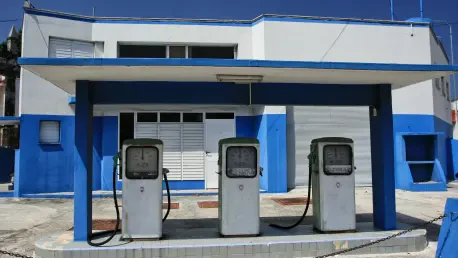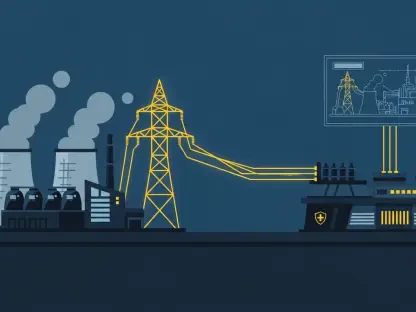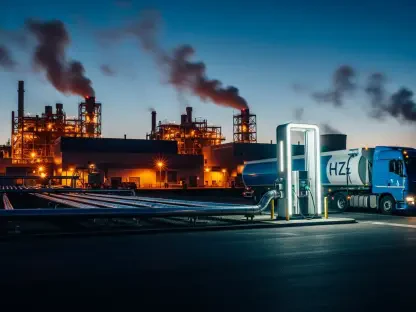In the heart of Havana, a troubling incident at the San Agustín bus terminal in La Lisa municipality has cast a harsh spotlight on a pervasive issue plaguing Cuba amid an already crippling energy shortage, revealing the dire intersection of resource scarcity and criminal activity. On a late September night, hundreds of liters of diesel fuel—destined for critical urban transport buses and communal waste collection trucks—were stolen, disrupting essential services and deepening the nation’s struggle with prolonged blackouts and faltering infrastructure. As Cuba grapples with one of its most severe energy crises in recent memory, such acts of diversion amplify the hardship faced by ordinary citizens, who rely on these strained systems for daily life. The incident serves as a stark reminder of the systemic challenges that continue to undermine efforts to stabilize the country’s energy landscape.
The Broader Context of Cuba’s Energy Struggles
Systemic Shortages and Public Impact
Cuba’s energy crisis has reached a critical juncture, with widespread blackouts lasting hours each day and public transportation grinding to a near halt in many areas. The scarcity of fuel, a cornerstone of both electricity generation and mobility, has created a ripple effect across all sectors, from healthcare to sanitation. In Havana, the capital city where population density exacerbates these challenges, the theft of diesel at terminals like San Agustín directly translates to fewer buses on the roads and uncollected waste piling up in neighborhoods. This incident is not merely a localized crime but a symptom of a national emergency where every liter of fuel counts. The economic downturn, compounded by limited access to international resources, has left the government scrambling to prioritize allocations, often at the expense of essential services. For residents, this means longer waits for transport and deteriorating living conditions, as the absence of fuel stalls even the most basic municipal operations.
Economic Hardship Fueling Opportunism
Beyond the immediate logistical fallout, the economic despair gripping Cuba plays a significant role in fostering an environment ripe for fuel theft. With salaries stagnating and inflation soaring, many individuals face immense pressure to make ends meet, sometimes turning to illicit means as a desperate measure. The incident at San Agustín, where an employee misused fuel cards meant for public services, underscores how economic hardship can drive opportunism, even among those entrusted with critical responsibilities. This trend is not unique to fuel but extends to other scarce commodities, reflecting a broader culture of resource diversion born out of necessity or greed. While not excusing such actions, the context reveals a vicious cycle: the energy crisis exacerbates economic struggles, which in turn perpetuate crimes that worsen the crisis. Addressing this requires more than punitive measures; it demands systemic reforms to alleviate the financial burdens that push people toward such acts.
Responses and Challenges in Curbing Fuel Theft
Official Actions and Investigations
In the wake of the San Agustín theft, swift action by authorities signaled a zero-tolerance stance on resource diversion during a national crisis. The Ministry of the Interior, alongside Havana officials, initiated a thorough investigation to determine the full scope of the loss and to hold those responsible accountable. The Havana Transportation Directorate issued a resolute statement, emphasizing that such crimes would face severe consequences, particularly given the acute energy shortages affecting the populace. This response was bolstered by joint control measures that uncovered the theft, highlighting a collaborative effort to monitor critical infrastructure. However, while these actions demonstrate a commitment to addressing immediate breaches, they also reveal the reactive nature of current strategies. The focus on investigation and punishment, though necessary, raises questions about the adequacy of preventive mechanisms in place to safeguard fuel supplies before they are misappropriated.
Recurring Incidents and Systemic Gaps
Despite official efforts, the recurrence of fuel theft at facilities like San Agustín points to deeper, unresolved issues in resource management. A similar incident at the same terminal just over a year prior illustrates a troubling pattern of vulnerability, where oversight failures and inadequate security measures allow such crimes to persist. These repeated events suggest that while authorities are quick to respond after the fact, the mechanisms to deter theft—such as enhanced monitoring systems or stricter access controls—remain insufficient. The broader challenge lies in addressing the systemic gaps that enable these acts, including corruption and a lack of accountability within institutions managing critical supplies. Until comprehensive reforms are implemented, the cycle of theft and response risks becoming a norm, further eroding public trust in the systems meant to support them. The energy crisis, already a formidable obstacle, becomes even more intractable when resources are siphoned off due to preventable lapses.
Looking Ahead: Strategies for Mitigation
Strengthening Preventive Measures
Reflecting on the fuel theft at San Agustín, it became evident that stronger preventive strategies were imperative to protect Cuba’s limited resources. Authorities had begun to explore enhanced security protocols at fuel distribution points, including the integration of digital tracking for fuel cards to prevent unauthorized use. Investments in surveillance technology at key terminals had also been considered to deter potential thefts before they occurred. Beyond hardware, there was a push for stricter vetting and training of personnel handling sensitive resources, aiming to reduce insider threats. These steps, while resource-intensive, were seen as critical to breaking the cycle of diversion that plagued essential services. By prioritizing prevention over reaction, the government hoped to safeguard fuel supplies and ensure they reached their intended purposes, thereby alleviating some pressure on the strained energy infrastructure.
Addressing Root Causes for Long-Term Stability
Looking back, the broader lesson from these incidents was the need to tackle the root causes driving fuel theft, particularly the economic despair fueling such crimes. Initiatives had been discussed to bolster social support systems, providing financial relief to vulnerable populations to reduce the desperation that often led to resource diversion. Simultaneously, there was a recognition that improving transparency and accountability within state-run enterprises could curb corruption and mismanagement. Partnerships with international entities to secure fuel imports and stabilize supply chains had also been on the table as a way to ease shortages. These efforts, though challenging amid fiscal constraints, were deemed essential for long-term stability. By addressing both the immediate security lapses and the underlying socioeconomic factors, Cuba aimed to forge a path toward a more resilient energy future, where theft no longer compounded an already dire crisis.









